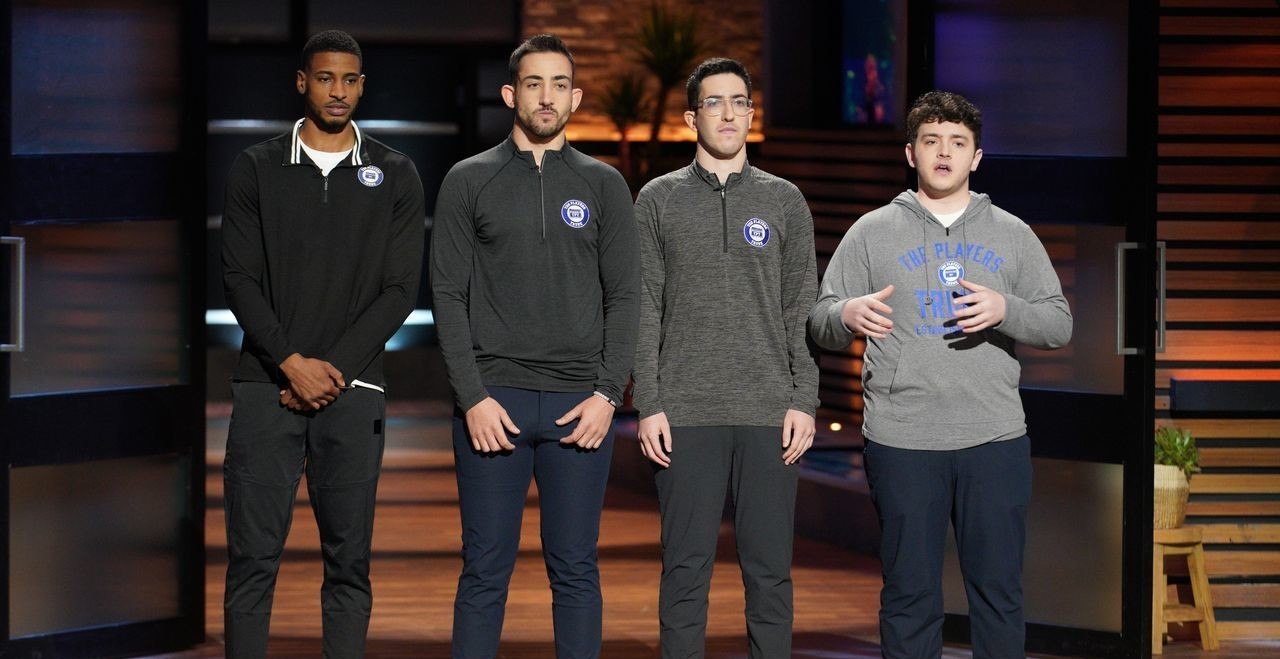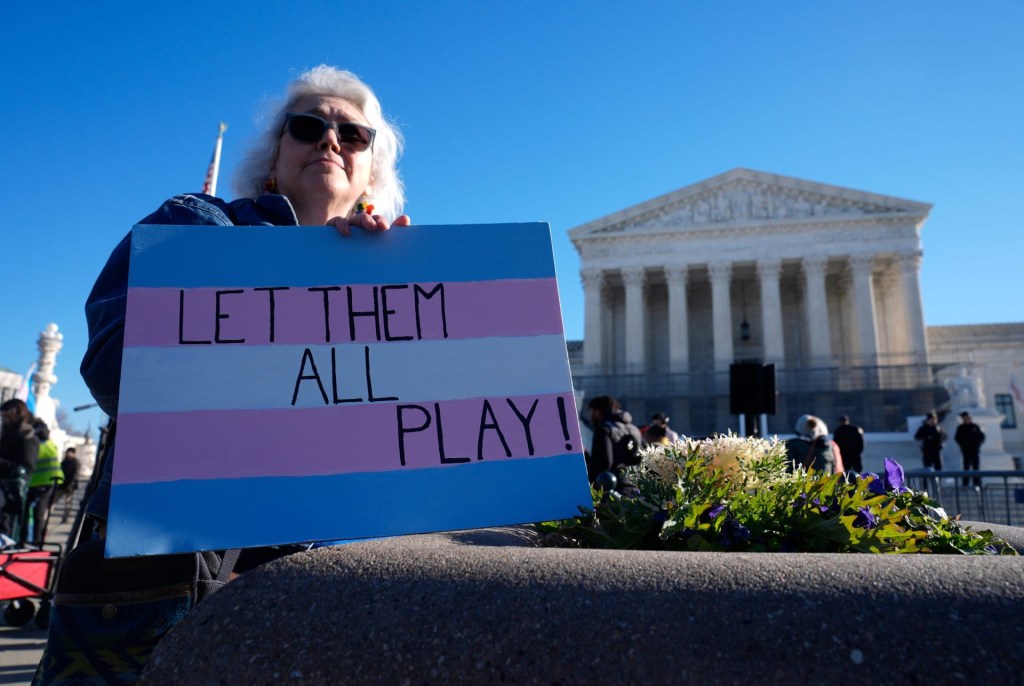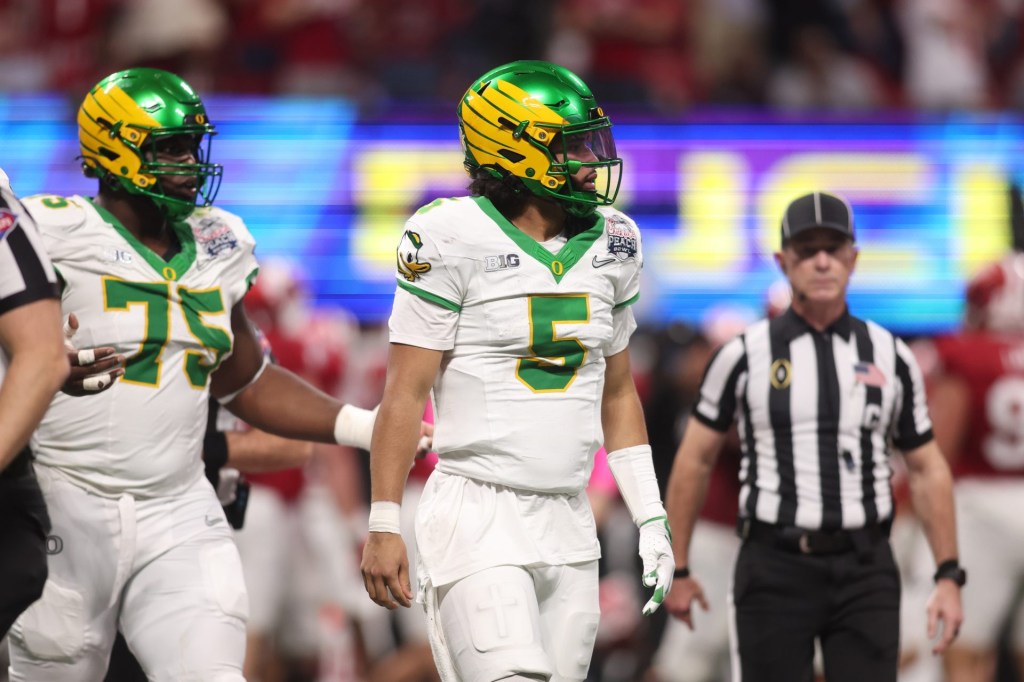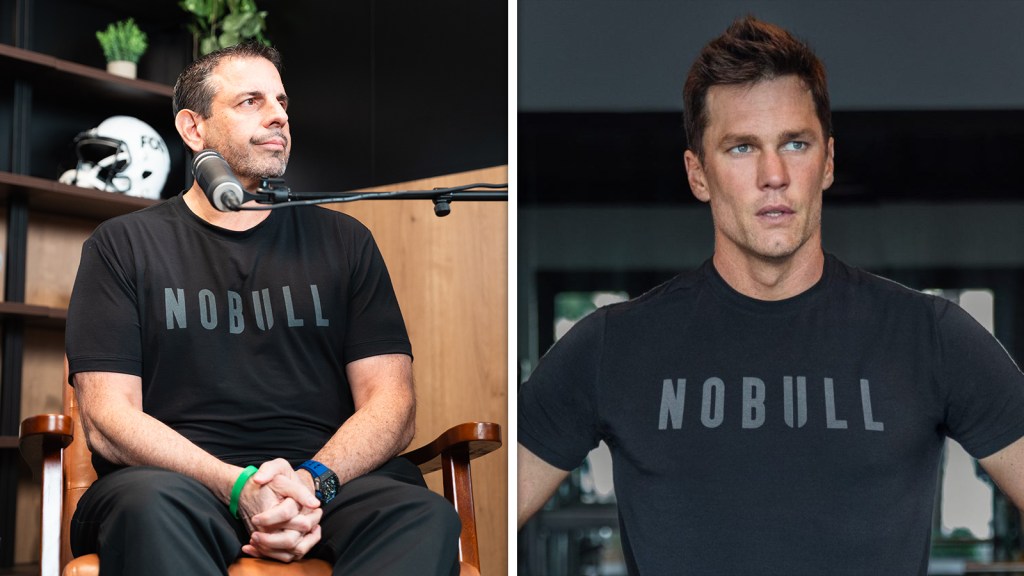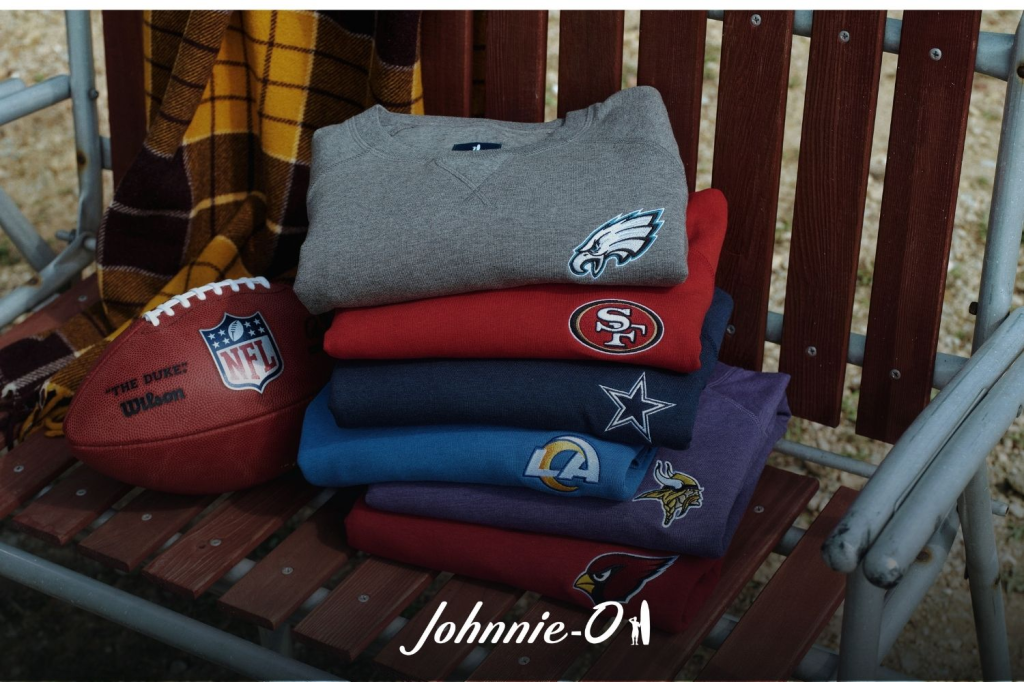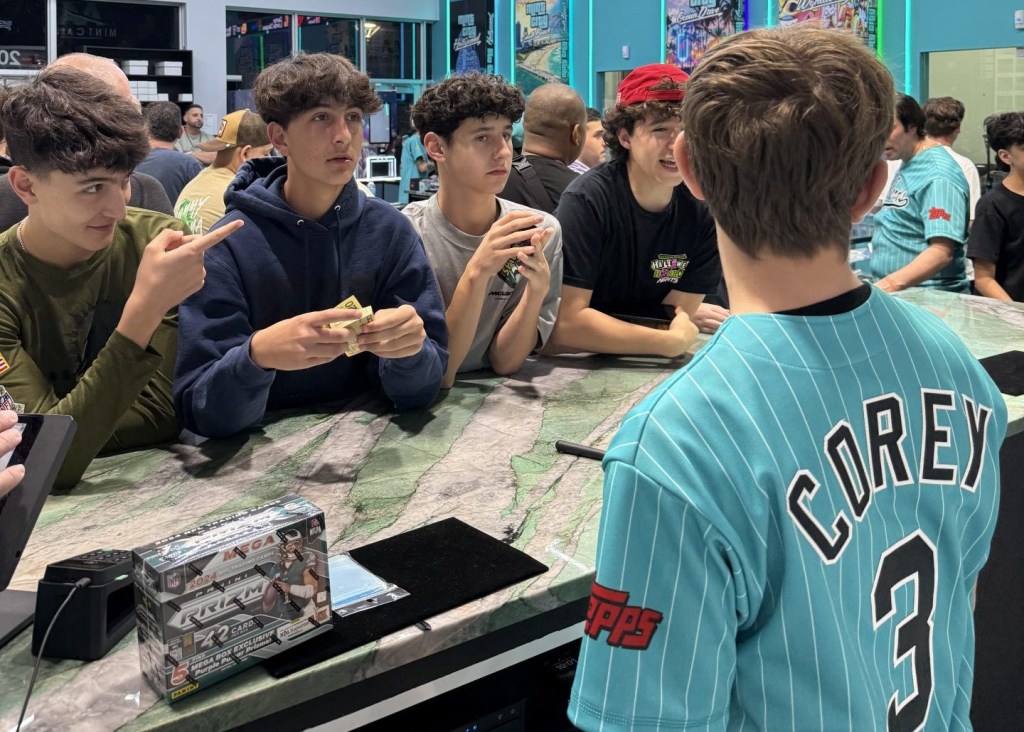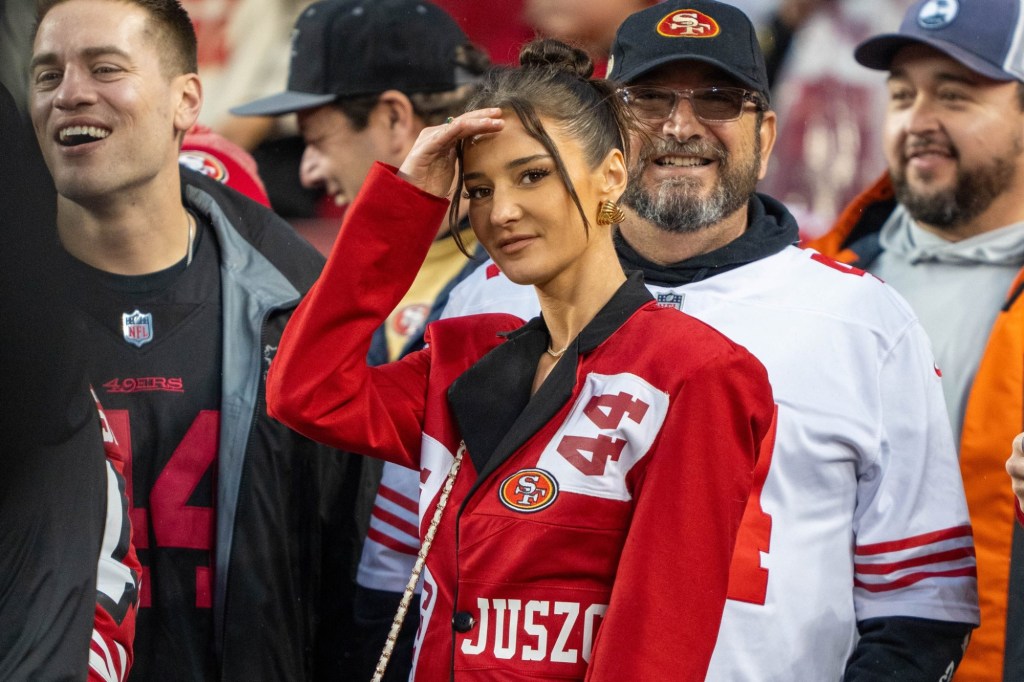In the months leading up to the NIL era, experts predicted social media posts and endorsement deals would be the major gold mines. With the exception of collectives, they were mostly correct.
But there’s another category that, from July 1, has gained momentum: apparel and memorabilia.
The Players Trunk is one company capitalizing on that interest — and likely the first NIL company to land a cameo on “Shark Tank.”
Launched in 2020 by a group of former men’s basketball managers and players, The Players Trunk started selling former athletes’ team apparel. Since NIL rules passed, they’ve added merchandise, trading cards, and other memorabilia using the likenesses of current athletes.
The company boasts about 1,500 current and former athletes from more than 100 schools, co-founder Austin Pomerantz (pictured: second from right) told Front Office Sports. In about a year, they did $1.3 million in sales with about $200,000 in profit. Athletes get the “lion’s share” of sales.
“Athletes really love connecting with their fans, and vice versa,” Pomerantz said, crediting The Players Trunk’s personal, creative brand — and the fact that a portion of the sales go directly to players.
One of their top sellers, Pomerantz said, were the shirts created with Syracuse’s Buddy Boeheim. But women’s sports items have been extremely popular on the platform, too. Nebraska volleyball star Lexi Sun, for example, put about 100 items on the site that sold out within one day.
The brand’s early success caught the eye of “Shark Tank” producers, who reached out and encouraged the company to apply to be on the show. The team filmed their segment in September 2021.
It finally aired last Friday, and drew extra attention for the fact that The Players Trunk turned down heavy hitters Mark Cuban and Kevin Hart.
The team asked the sharks for a 5% buy-in for $650,000 on a valuation of $13 million — a number the sharks mostly scoffed at. Cuban and Hart countered with 30% — which the team shut down.
Kevin O’Leary called them “bozos” for turning down any deal with the firepower Cuban and Hart could provide, but Pomerantz was content with the decision.
Going in, the team was willing to do business with any investor. But “this is sort of our baby, and to give up 30% of the company … that was just far too much for us,” Pomerantz said.
